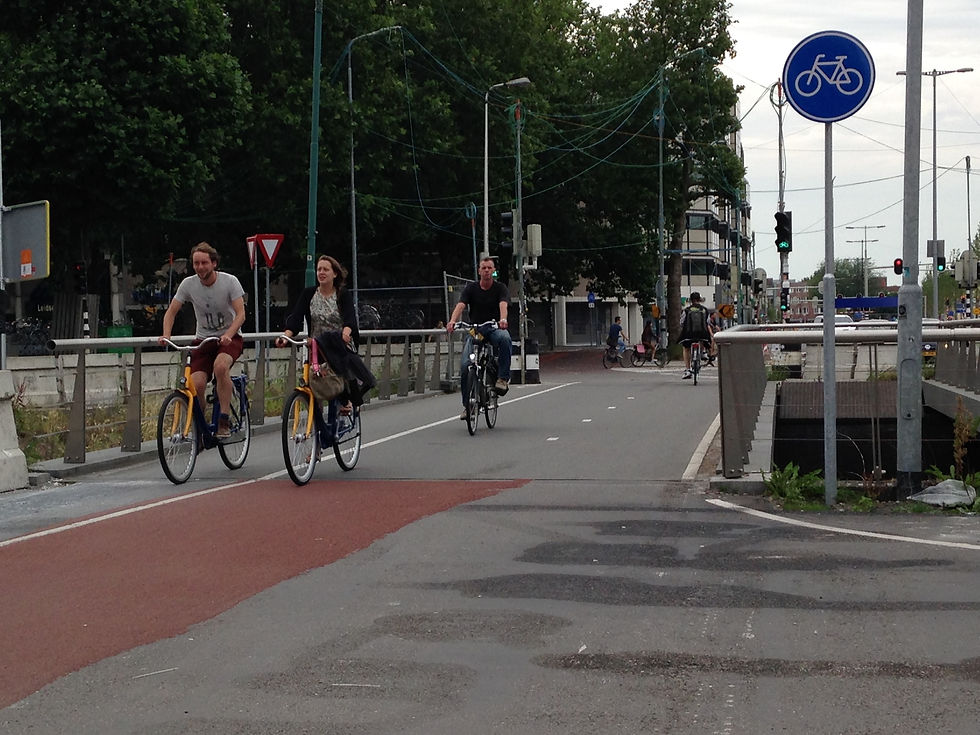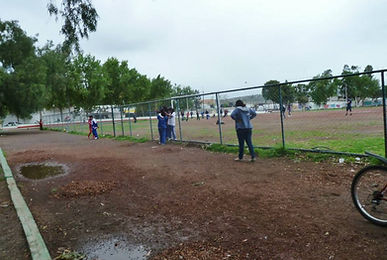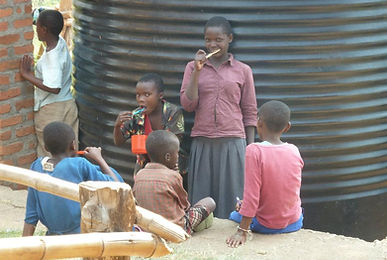COMMUNITY HEALTH PROMOTION - ABROAD
The following trips have taught me the importance of sustainability in health promotion initiatives. Empowering local community members, changing local infrastructure, and citizen education are all key elements of successful programs. Countries visited include Spain, Denmark, Switzerland, Netherlands, Germany, Rwanda, Mexico, and Peru

Insert your plastic bottle and receive $0.25-0.50 cents off of your grocery purchase. This machine was common in major German cities.

Utretch, Netherlands was biker's paradise! There were entire parking garages just for bikes, and the whole downtown was bikes and public transportation only. No private cars!

Bus, Train, no! Bike! This system allows you to use your Public Transportation pass to borrow a bike, and return it to any location across the city!

Insert your plastic bottle and receive $0.25-0.50 cents off of your grocery purchase. This machine was common in major German cities.
Western Europe - To Study Public Health
I spent Summer of 2016 in major cities of Europe to study their Public Health and Eco-friendly initiatives. Here are some of the photos and notes I took through out the trip. Europe is a step ahead of the U.S. in many ways when it comes to community health promotion. From public outdoor gyms, to bike parking garages, to massive community garden complexes, to recycling machines that give you store credit reimbursement, I saw a wide range of public health & sustainability projects being implemented that were not yet common in the U.S.
Additionally, I was asked by my family's company Main Street Pedicabs (a Colorado-based company) to follow-up with a customer in Spain. We discussed the possibilities of bringing pedal-powered vehicles to new cities in Spain, to help promote eco-friendly transport options.

Mexico City - To Fight Sex-Trafficking
Flatirons Community Church and i-Empathize (2013)
Of 25 candidates applying for 12 spots, I was chosen to join this traveling team thanks to my Spanish speaking skills and past travel experience. These qualifications came in handy during our day camp for the school children of Chimalhuacan, an impoverished city on the outskirts of Mexico City. Our camp, "Somos Uno", educated the kids on the threats of sex trafficking and other forms of slavery. Our goal was to prevent future victims by uniting and empowering them as a generation and creating awareness. The trip also included meeting with political figures and local advocates, helping them grow their non-profit organizations and campaigns against sex-trafficking.
School children playing outside before our "Somos Uno" day camp in Chimalhuacan, Mexico.

Residents of L'Esperance brushing their teeth after breakfast.
Rwanda - To Support a Hospital & Orphanage
Centura Global Health and L'Esperance (2011)
After 30 hours of airplanes and a 3 hour bus ride (the bumpiest ride of my life), we arrived at L'Esperance, a "Children's Village" in the rural hills of Rwanda. The orphanage is run on a variety of self-sustainable projects, such as growing its own food, using its own water filtration system, selling dried pineapple (harvested and prepared by the kids), and selling CD's of the children's singing. Working alongside the director, I learned the importance of giving the children independence and allowing them to be productive, pursue an education, and learn to support themselves. Our team also worked to help educate the aspiring doctors at the local hospital, working alongside them in during surgeries.


